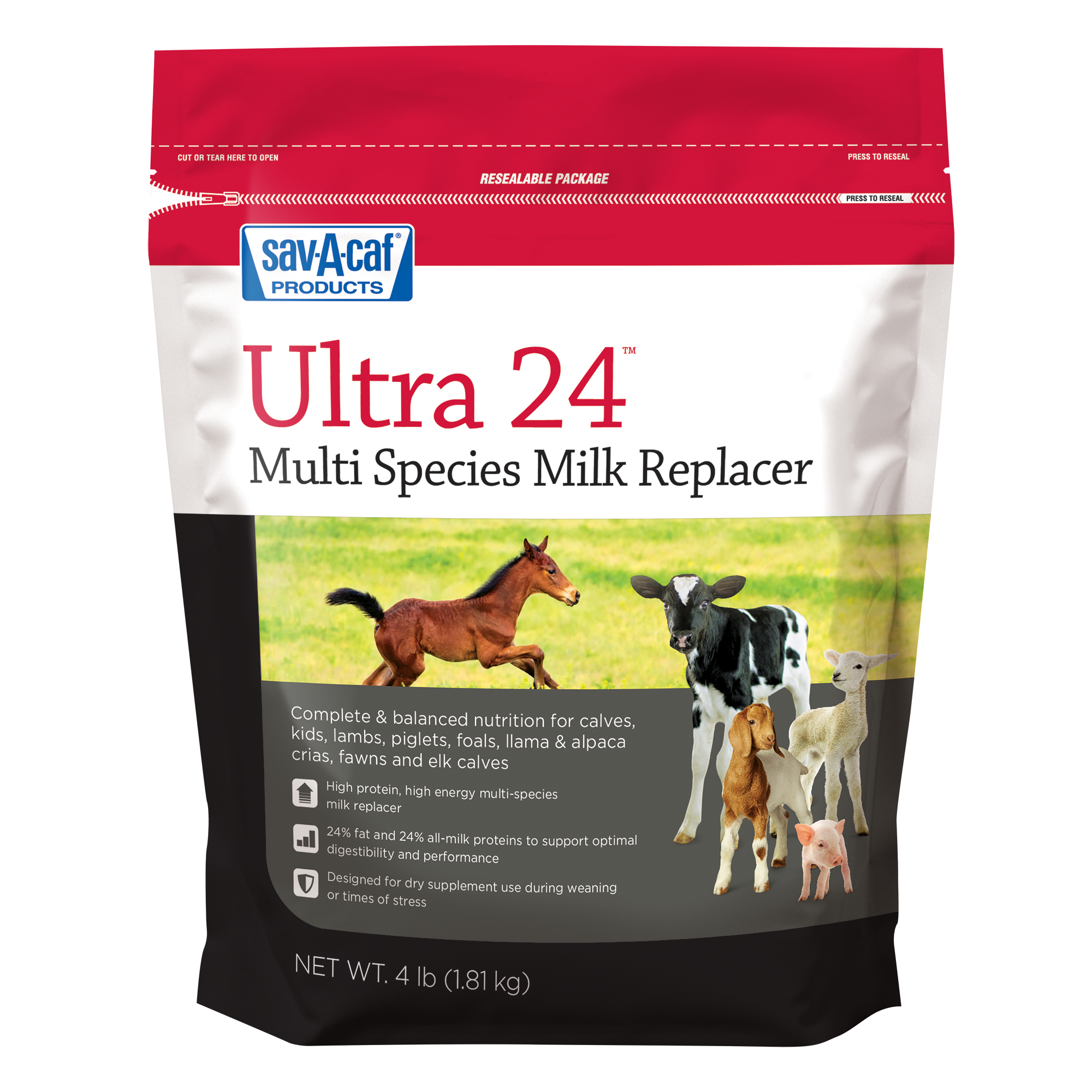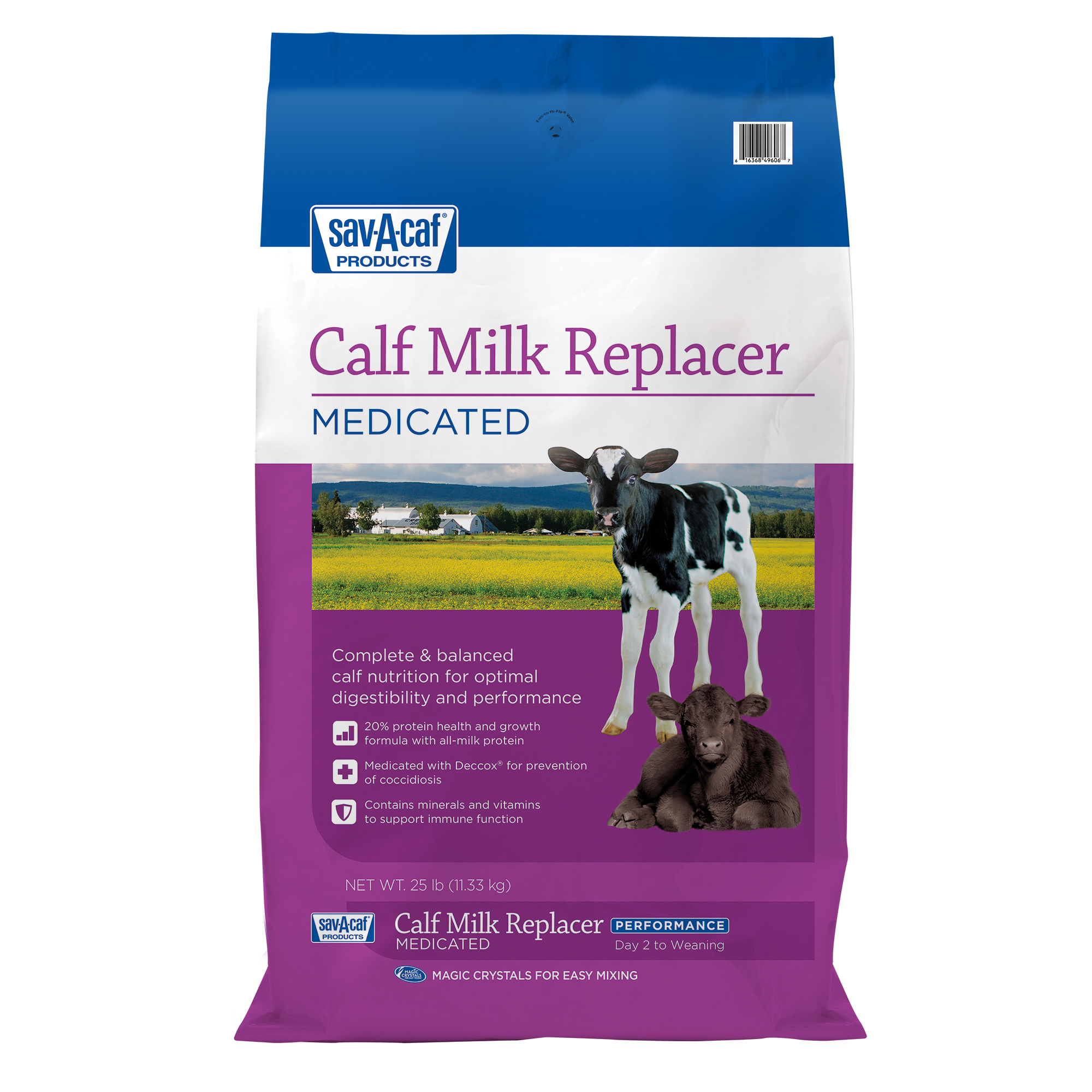
How to feed your calf in the first few weeks
Are you welcoming a new little calf to your farm? If so, you might be wondering how to ensure your newest addition thrives from the moment they open their eyes. Knowing what to feed your calf and how to provide them with the proper nutrition in the first weeks of their life will give them the opportunity to grow into the strong and healthy adult they are meant to be. Here are a few tips on when and how to get started.
The First Few Hours
In the first few hours, calves will naturally begin nursing. This is when they benefit from the immune-boosting power of their mother’s colostrum. If this is not a possibility due to an unwillingness to nurse or inadequate colostrum from the mother, you must make sure to have colostrum replacer readily available. If this occurs, begin bottle feeding a colostrum replacer, such as Sav-A-Caf® Calf Colostrum Replacer 100, within two hours after birth when they are best equipped to absorb the critical antibodies.
The First Few Days
If your calf is still not nursing adequately in the first two days after birth, you can switch from colostrum replacer to a milk replacer. This or milk will be the primary source of the calf’s nutrition for the first two to three months of their life until the calf is weaned. Sav-A-Caf Milk Replacers are specifically formulated for calves, which is essential when choosing the right milk replacer. These provide the optimal blend of energy i.e., carbohydrates and fat, protein, vitamins and minerals for a growing calf. Calves can be picky, so it is best to stay in a routine by feeding them twice a day at around the same time each day. You may want to consider feeding your calf a third time if they are small and weak or in cold temperatures.
The First Week
Within the first week, it is time to introduce free-choice starter feed concentrate while continuing to feed your newborn milk replacer twice a day. This concentrate should be specifically formulated for calves and contain at least 18% protein. Calves’ stomachs are best adapted to digesting milk, unlike a mature cow’s stomach built for digesting large quantities of forage. By introducing grain early on, your calf can get a jump-start on developing the beneficial bacteria populations needed to advance their ability to digest forage. You want to avoid feeding your newborn calf large amounts of forage, however, due to the possibility of slowing down rumen development. This is why you do not want to feed hay or allow access to large amounts of pasture until after your calf is weaned.
Water is also an essential factor in your calf’s well-being. Make sure to keep the water clean and fresh to encourage your newborn to drink enough. This will ensure they develop those healthy bacteria needed to establish their rumen.
The Next Few Weeks
When your calf is between six and 12 weeks old, watch their feed consumption to determine when exactly to begin weaning. If they are regularly drinking water and eating at least two pounds of calf starter per day, they may start the weaning process.
You can consider weaning your calf abruptly (“cold turkey”) when they are eating around 5-6 pounds of starter. On the other hand, to encourage starter feed intake, you can cut back to one milk replacer feeding per day for 10-14 days in preparation for weaning.
Because weaning can be a stressful process for a calf, you should consider waiting to wean if you sense that they are under stress from transport, vaccination, or other causes. You want to make sure this process goes smoothly to ensure your calves can grow to become happy and successful new members of the farm.
Get more calf care and nutrition tips or like My Farm Journey on Facebook.



